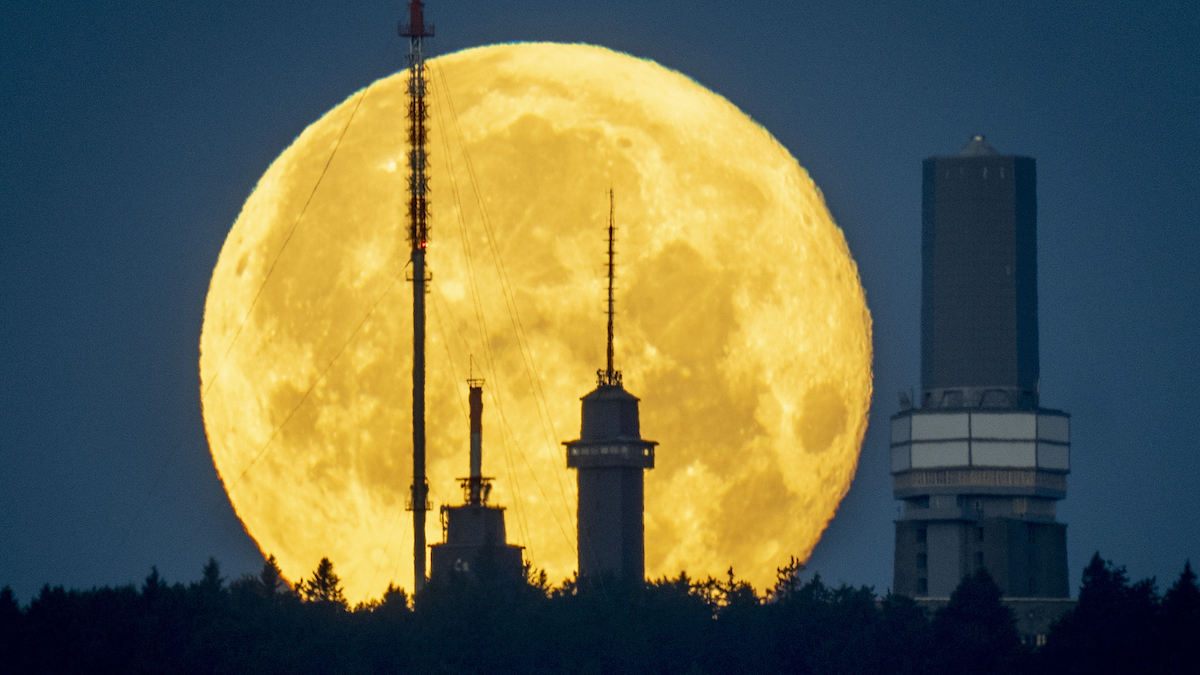Pull out those binoculars or just look up lunar lovers as this week's supermoon is set to be the biggest and brightest of them all.
"This will be the most super of this year’s supermoons, as (Wednesday) the moon is at its closest point to Earth in its elliptical orbit," NBC10 First Alert Weather meteorologist Bill Henley said.
The Buck Moon, also known as the "Thunder Moon," has reached its closest point to our planet on Wednesday, July 13.
This moon, which is the second supermoon of the summer, comes after the Strawberry Moon, which peaked on June 14.
Get top local stories in Philly delivered to you every morning. Sign up for NBC Philadelphia's News Headlines newsletter.
What is a supermoon?
A supermoon occurs when the moon's orbit is closest (perigee) to Earth at the same time that the moon is full, according to NASA.
The term supermoon was created in 1979 and is used to describe a perigean full moon, which is a full moon occurring near or at the time when the moon is at the closest point in its orbit around Earth.
What is the July Buck Moon?
According to The Farmer's Almanac, "This name comes from our Native American and Colonial past when the Moon was used to track the seasons. Bucks are growing new antlers at this time." The full moon is also known as "thunder moon" because thunderstorms are frequent during this month.
Other names for the moon are "Mead Moon" and "Hay Moon" because of the mead and haymaking in June and July, according to NASA.
As with all supermoons, the buck moon will be bigger and brighter than the average moon because of its close proximity to the earth. This moon will be the closest to the earth out of all of the summer supermoons.
This moon will appear 14% larger and 30% brighter compared to full moons near the farthest distance from Earth.
When is the best time to see the Buck Moon?
The best time to watch will be when the moon rises above the horizon later in the evening. Though there is no need to worry if you don't catch it. The moon will appear full for about three days from the morning of Tuesday, July 12, to the morning of Friday, July 15.
Henley said skies will be partly cloudy Wednesday night in the Philadelphia area, allowing for a nice view of the full moon rising at 9:02 p.m.
You can check for specific times in your city here.
If you prefer to stay in or conditions are cloudy in your area, The Virtual Telescope Project will be hosting a livestream starting at 2 p.m. EST.
How to watch the supermoon?
Look up and east! The moon will rise in the east just after sunset.
There is no equipment necessary to catch the brightest moon of the year, but a pair of binoculars or telescope can enhance your experience.
When is the next supermoon?
The next supermoon, which will be the last of 2022, is the Sturgeon Moon and it is set to rise on Thursday, Aug. 11.



